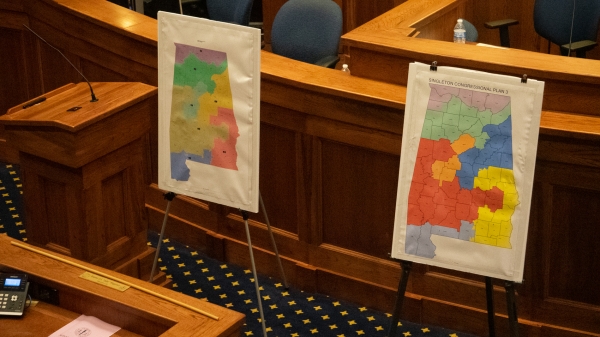A federal judge Wednesday chided the American Alliance for Equal Rights for its motion to rule a racial quota unconstitutional without a trial.
The organization sued the state on behalf of member Laura Clark, arguing that a statutory requirement for two racial minorities on the Alabama Real Estate Appraisers Board led Clark to be unfairly discriminated against for a seat.
“Whatever Ms. Clark’s and the Alliance’s motivation for bringing this action—to remedy a true constitutional injury or to achieve some policy objective—they sought to grasp their unusual prize too soon, on nothing more than a bare-bones albeit plausible Complaint and a few pages of briefing,” wrote U.S. District Judge R. Austin Huffaker Jr. in the ruling. “Far more sweat and elbow grease are required to obtain facial invalidation of a duly enacted statutory clause; one, counsel speculated, that appears in over two dozen other Alabama statutes relating to public appointments.”
Clark is the interim president of the Alabama Center for Law and Liberty, a conservative political law firm originally spawned by Alabama Policy Institute.
The state does not deny the claim that the two-minority requirement is unconstitutional, but says the lawsuit is moot because Gov. Kay Ivey and Attorney General Steve Marshall say the provision won’t be enforced.
The parties were headed toward a settlement until the Alabama Association of Real Estate Brokers intervened. The AAREB is an association of African-American real estate brokers in the state. The association is being represented in the case by the nonprofit national law firm Democracy Forward.
“The Court rightfully rejected the Plaintiff’s effort to strike down a critical law without allowing the defense an opportunity to test Plaintiff’s factual assertions and develop evidence,” said Brooke Menschel, senior counsel at Democracy Forward. “On behalf of the Alabama Association of Real Estate Brokers, we stand ready to show the crucial role that this law plays in addressing the lasting impacts of discrimination in appraisals, lending, and housing.”
Huffaker wrote that requests for judgment on the pleasings are “peculiar creatures.”
”They short-circuit the ordinary course of litigation—bypassing discovery, motions for summary judgment, a trial, post-trial motions—skipping all the way to final judgment based on the complaint, answer(s), and any appropriate papers that accompany them,” Huffaker wrote. “It is a procedural vehicle that is rarely invoked and seldom granted; probably because it is not all that difficult for a non-moving party to defend itself against the attack.”
It is this technical move that Huffaker wrote is responsible for the denial.
“Had the Alliance relied on a more robust Complaint, coupled with appropriate exhibits appended to its pleading, the case might well have been decided on the merits today,” Huffaker wrote. “But the Court takes the pleadings as it finds them, so the Governor and Brokers Association now have the opportunity to give it their best shot at summary judgment or trial.”
The defendants will now have the opportunity to conduct some discovery, including expert witnesses.


















































